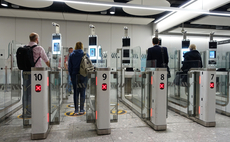New medical evidence buys hacker some time
McKinnon: case put on hold Home secretary Alan Johnson is to look at new medical evidence before formally approving the extradition of British hacker Gary McKinnon. Johnson said he had "stopp...
To continue reading this article...
Join Computing
- Unlimited access to real-time news, analysis and opinion from the technology industry
- Receive important and breaking news in our daily newsletter
- Be the first to hear about our events and awards programmes
- Join live member only interviews with IT leaders at the ‘IT Lounge’; your chance to ask your burning tech questions and have them answered
- Access to the Computing Delta hub providing market intelligence and research
- Receive our members-only newsletter with exclusive opinion pieces from senior IT Leaders




















